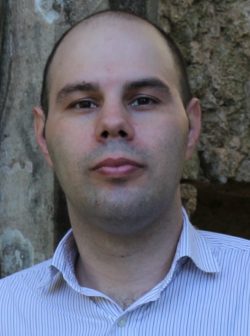Promoting psychosocial resilience and adaptation to heatwaves: the role of situational appraisals of demands and resources
- Date
- Wednesday 20 February 2019, 14:00-15:00
- Location
- 1.05 Charles Thackrah
- Speaker
- Samuel Domingos
- Who can attend
- Staff, students, alumni and external guests
Abstract
Heatwaves are becoming increasingly worrisome due to the impacts they have on human health and mortality. As a result of climate change, these events are expected to become more frequent, intense, and long-lasting. In a mix-method study with 159 participants, we aimed to better understand people’s coping strategies in the context of heatwaves. We built on the Biopsychosocial (BPS) Model of Challenge and Threat, which suggests that coping strategies are shaped by the appraisal (e.g., perception and judgment) of the demands (e.g., danger, effort, and uncertainty) posed by the stressful situation and the available resources (e.g., physical, psychological, and social assets like) to cope with such demands. Results suggest that by default participants appraise higher demands than resources, but this can be changed by positive affect. I will discuss the implications of our findings for promoting individuals’ and communities’ psychosocial resilience and adaptation to heatwaves.
About the speaker
 Samuel Domingos has a master’s degree in Work and Organizational Psychology from the University of Évora. Currently he is a PhD candidate in the Lisbon PhD in Social Psychology program (LiSP) at ISPA – Instituto Universitário. His research focuses on psychosocial processes involved in human appraisals (e.g., perception and judgment) of the demands (e.g., danger, effort, and uncertainty) posed by heatwaves and the available resources (e.g., knowledge, abilities, skills, dispositions, and support) to cope with them. This research seeks to advance understanding about human’s psychosocial resilience and adaptation strategies when faced with extreme events, and derive implications for risk and disaster communication to potentiate individual’s and communities’ psychosocial resources to cope with future increasingly frequent and severe demands.
Samuel Domingos has a master’s degree in Work and Organizational Psychology from the University of Évora. Currently he is a PhD candidate in the Lisbon PhD in Social Psychology program (LiSP) at ISPA – Instituto Universitário. His research focuses on psychosocial processes involved in human appraisals (e.g., perception and judgment) of the demands (e.g., danger, effort, and uncertainty) posed by heatwaves and the available resources (e.g., knowledge, abilities, skills, dispositions, and support) to cope with them. This research seeks to advance understanding about human’s psychosocial resilience and adaptation strategies when faced with extreme events, and derive implications for risk and disaster communication to potentiate individual’s and communities’ psychosocial resources to cope with future increasingly frequent and severe demands.
